
Analysis
11:20, 09-Feb-2019
'The Wandering Earth': A milestone for Chinese science fiction films
Wang Xinyan
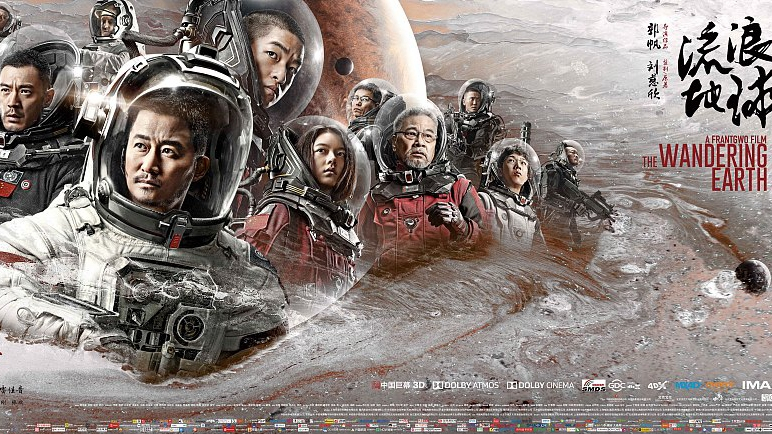
China's first space-based science fiction blockbuster "The Wandering Earth" has stood out among the Lunar New Year's films, winning both the box office and reputation and regarded by industry insiders as a milestone in the development of China's science fiction industry.
Analysts point out that, in recent years, China has demonstrated its aerospace ambitions and pursued the United States in space exploration. However, science fiction films have long been a blank in the Chinese film industry.
"The Wandering Earth” is expected to open the dawning of a new era in domestic science fiction films, breaking the monopoly of sci-fi movies by Hollywood.
"The leap into sci-fi reflects Chinese filmmakers' growing budgets and confidence to tackle topics previously monopolized by Hollywood," observed the Financial Times.
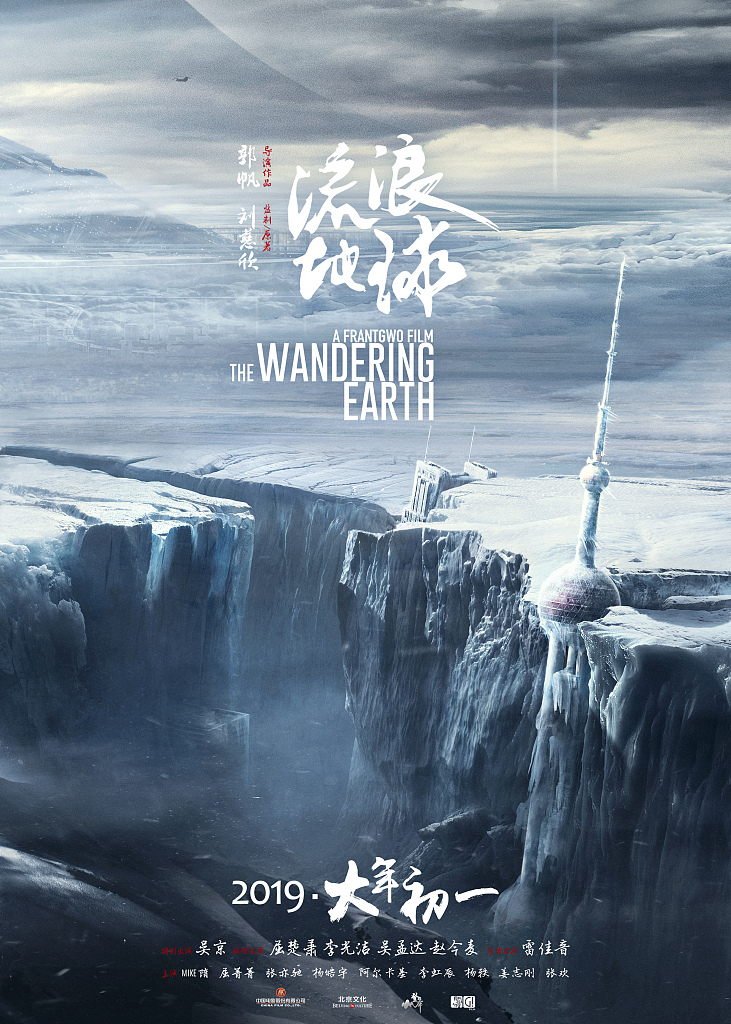
The movie "The Wandering Earth" poster. /VCG Photo.
The movie "The Wandering Earth" poster. /VCG Photo.
“The Wandering Earth” describes a story in a distant future that the Earth is going to be devoured owning to the Sun expanding into a red giant. The upcoming peril forces people around the world to build thousands of massive rocket thrusters at certain spots on the Earth and separate the entire planet from the solar system.
According to the data of the Cat Eye(a Chinese Internet movie entertainment platform), as of the afternoon on February 8th, the box office of "The Wandering Earth” totaled 1.057 billion yuan ( about 156.76 million U.S. dollars), exceeding the number of another fiction film, "Crazy Alien", which reached 1.056 billion yuan (about 156.62 million U.S. dollars).
It not only becomes the biggest winner on box office but also receives a high reputation, being the most popular New Year movie during the Chinese Lunar New Year.
"The film, starring Wolf Warrior's Wu Jing, is a sci-fi movie of epic scale that rivals Hollywood blockbusters like Interstellar and Gravity," and it could be "the film to spark China's science fiction moviemaking," said the South China Morning Post. And the Australian Flicks even thinks it might be "the best sci-fi movie of 2019."
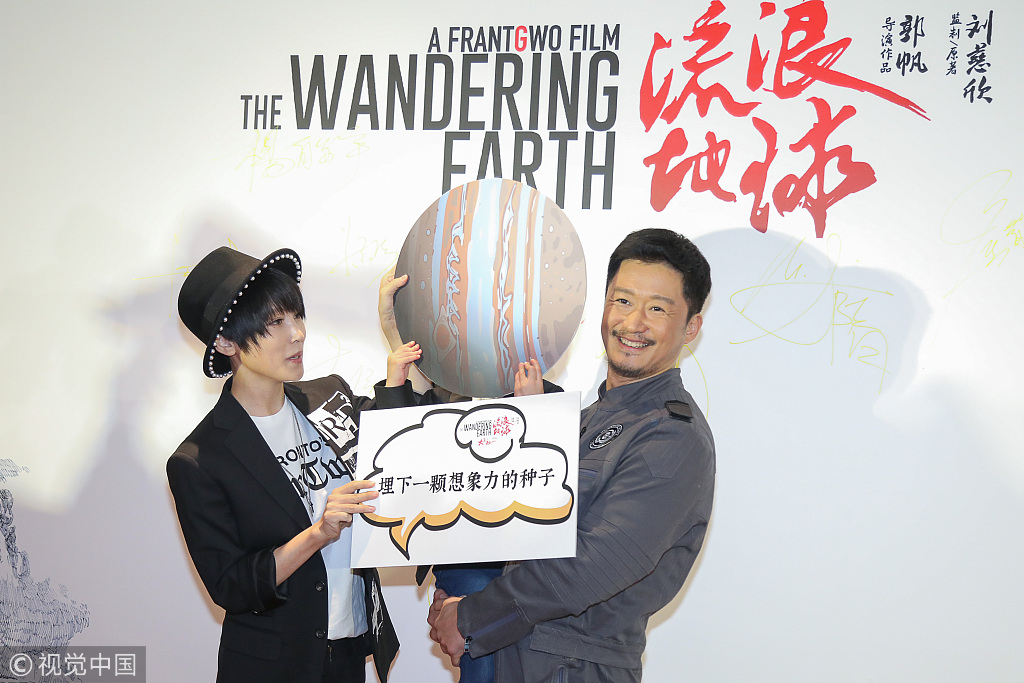
On January 28, 2019, the press conference of the film "The Wandering Earth" was held in Beijing. /VCG Photo.
On January 28, 2019, the press conference of the film "The Wandering Earth" was held in Beijing. /VCG Photo.
The film is adapted from the novel of Chinese science fiction writer Liu Cixin, who won the Hugo Award by “The Three-Body Problem” in 2015, the first Chinese winner.
A few years ago, the sci-fi industry had a hot debate on making a high-quality science fiction movie. Liu Cixin also said in an interview that his biggest dream was to turn one of his fictions into a movie. Science fiction movies, as a unique type featuring high difficulty and high cost, represent the highest standards in the film industry. The birth of "The Wandering Earth" rounds out Liu Cixin's dream and brings hope to people.
Actually, "The Wandering Earth" is regarded as the first "hard science fiction" blockbuster in China. The entire science fiction scenes in the film are Chinese localized, such as the collapsed Beijing CBD buildings, the glacially covered Shanghai, the thick New Year flavors in the underground cities, as well as the Chinese-style traffic warning.
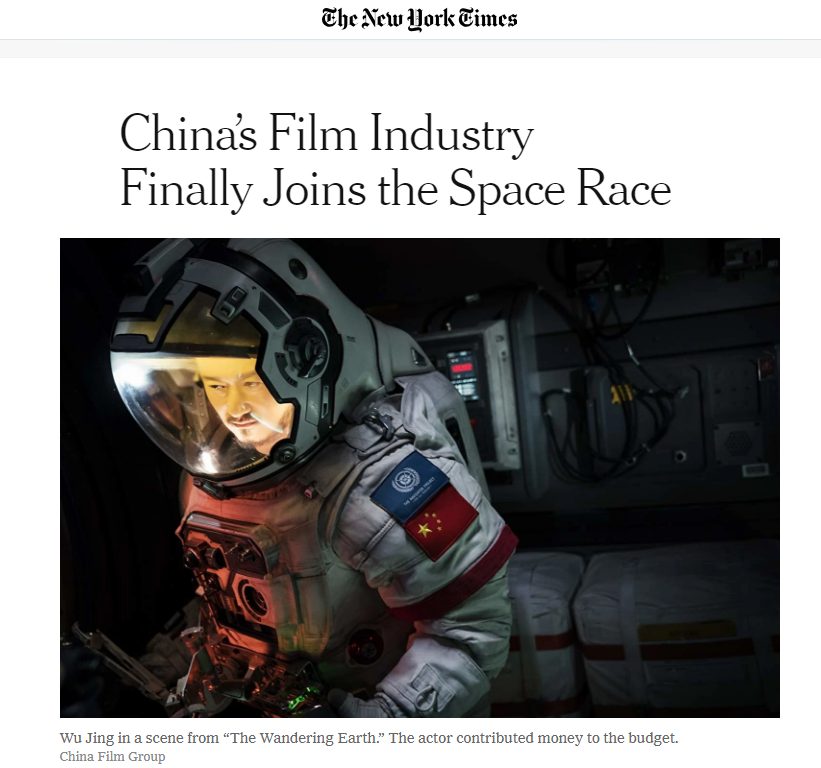
A screenshot of The New York Times.
A screenshot of The New York Times.
You Jie, a professor at the School of Film and Television Arts of Communication University of China, told the Lianhe Zaobao that "science fiction films must have a certain scientific basis, but they should not be too far from reality. They have higher requirements for the audience's knowledge reserve and cultural level. Chinese viewers' demand for movies is no longer satisfied with films for low-end audiences, and science fiction films have a more mature audience in China."
Apart from the Chinese elements, the traditional Chinese virtues that value duty, self-sacrifice and love to family and country, as well as doing things for the greater good are also fully reflected in the film.
What's more, not like the Hollywood sci-fi films, the Americans are not the only ones capable of saving humanity, this time the Chinese people are the adventurers to complete the arduous task of separating the Earth from hitting Jupiter. Of course, without international collaboration, the task of solving the threats facing the planet can't be done. This is the essential difference between "The Wandering Earth" and many other movies of the same type, and also a theme that runs deeply through Liu's fiction.
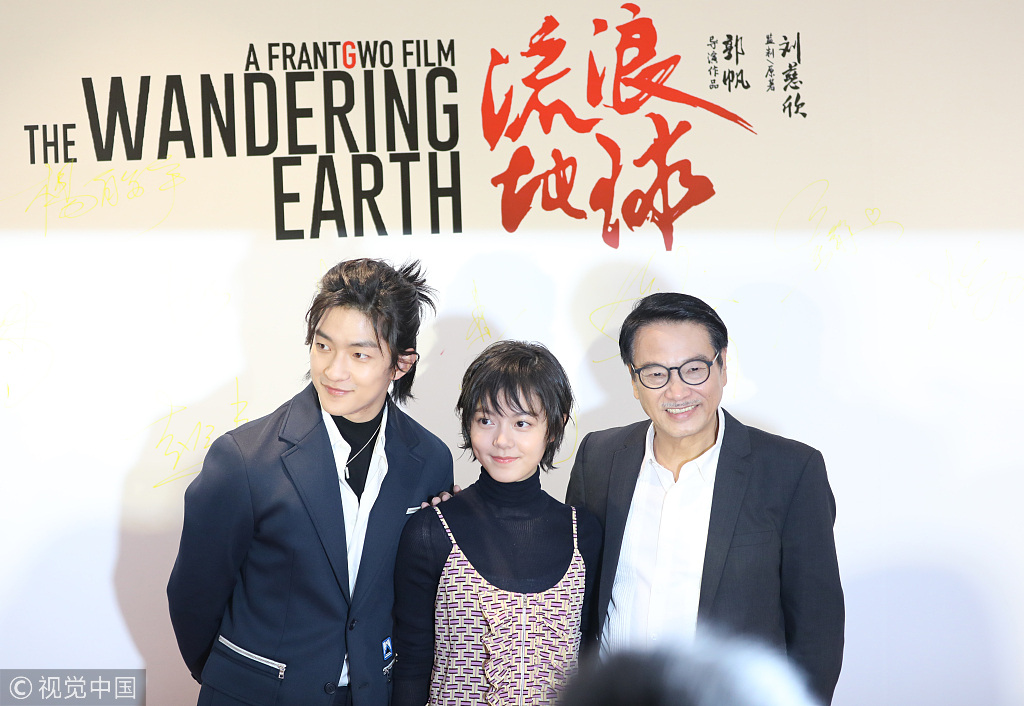
On January 28, 2019, the press conference of the film "The Wandering Earth" was held in Beijing. /VCG Photo.
On January 28, 2019, the press conference of the film "The Wandering Earth" was held in Beijing. /VCG Photo.
A scholar from East China Normal University said, "The Wandering Earth is not only a film but also represents an epoch-making cultural phenomenon. The charm of science fiction lies in jumping out of the usual triviality, looking up at the stars, and using a broader perspective to see the position and existence of human beings in the universe. In this respect, The Wandering Earth has been very successful."
The sci-fi industry is still a small circle in China. Before Liu Cixin entered into the public, the sci-fi circle has been in an extremely edge state. Science fiction movies are more difficult to create because the plot is difficult to understand, the cost of shooting is high, the release period is long, the return on investment is not guaranteed and people are afraid to step in.
The Cat Eye predicts that the final box office of The Wandering Earth is 5.334 billion yuan (796 million U.S. dollars). There is no doubt that the huge success has brought great confidence to the domestic sci-fi industry. Just as the New York Times said, "China was a latecomer to space exploration, and in the movies, it has been a latecomer to science fiction, too. That is about to change."
(If you want to contribute and have specific expertise, please contact us at opinions@cgtn.com)

SITEMAP
Copyright © 2018 CGTN. Beijing ICP prepared NO.16065310-3
Copyright © 2018 CGTN. Beijing ICP prepared NO.16065310-3